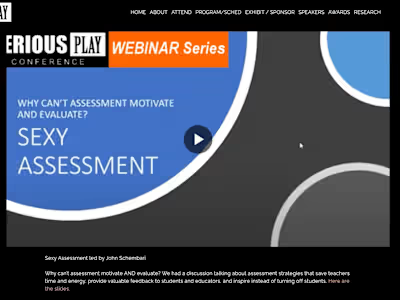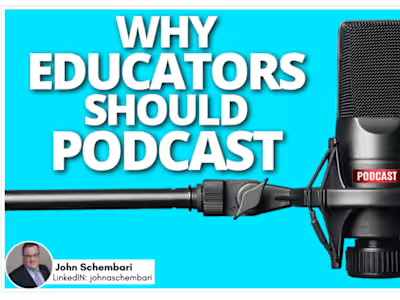Educational Consulting Is Knocking: Should You Answer? 5 Things…

As they say, life is what happens when you are busy making other plans. In spring of 2016, I had just returned eastside after spending some time in California and found myself at a crossroads. Would I return to a full-time role or hang my own shingle as an independent educational consultant?
Although the inherent lack of job security certainly provoked great pangs of anxiety in me, I decided nonetheless to try my luck as an education consultant. I had, over the years, developed deep skills in coaching teachers and school leaders, and I wanted to try to utilize those skills across organizations and schools. In what other capacity would I have had the same opportunity to assess American curriculum schools in Dubai, help the Ministry of Education of East Timor reform its middle years 21st-century curriculum, and/or work with the Lakota nation?
Sometimes it takes an outsider to an organization to accurately assess the needs of that institution and to offer solutions to pain points that an insider might not see. However, consulting also is not without its share of drawbacks.
Here are five things you need to know about educational consulting before diving into this pool:
You Need A Brand
Bigstock
As says WID global marketing expert Lisa Perry, "everyone" is not your customer. Education is a vast and growing industry. There is K–12 and higher education. There are those who advocate for education policy, support school network operations, market and then train educators on various school support products/resources, and still others who are practitioners of teaching and learning from cradle to senior daycare. What kind of consultant would you be? What pain would you solve? With whom would you work in education—policymakers, advocacy organizations, EdTech, government, publishers, schools, districts, and/or states?
You Might Juggle Different Tasks And Organizational Cultures
Bigstock
Different strokes for different folks. Some education consultants thrive in providing a service to clients. Often, this means working with boards to develop strategic plans and/or to engage in school improvement conversations, coaching teachers, training people, and/or developing the leadership capabilities of others. Some education consultants provide products such as writing a curriculum or designing a data assessment tool. Some consultants provide both such as those who might train others on the use of assessment tools, digital learning management systems, and/or a new textbook series.
Consider if you work best as an independent consultant, sub-contractor, and/or as a part- or full-time employee. As an independent, you work out the details of your work with the client. You are responsible to yourself/them. As a sub-contractor and/or part-time consultant, you will still have some say in assignments you accept but this work may come with certain meeting/teaming responsibilities which can be a challenge when working on several contracts. As a full-time employee, you may receive benefits and job security but have much-reduced autonomy. Cleopatra was bitten by a snake; pick your poison.
You Must Network
Bigstock
Consultants who are not full-time employees need to be experts in three things: practicing their craft/area of expertise, invoicing, and looking for their next gig. I know of many consultants who have worked long term with just one or two organizations. However, if a consultant must work across organizations to earn a living, they will want to increase their networking while maintaining their existing portfolio of work/clients. Consulting is by nature a great way to rapidly expand one's network of peers especially if one is working as part of a consulting team. Post original content and curate that of others on social media daily.
You Will Have Work Cycles
Bigstock
One never knows when a consulting opportunity will materialize or end. If an organization decides to rebrand itself, and you do not fit that image, you are easily expendable. Other times, one might find a new client and/or contracting firm to be a bit disreputable. Much like B actors, get used to being fired. Have networking leads in the hopper to ease the anxiety that will come with lost revenue.
Winter is always coming. I lost approximately 90% of my income due to initial COVID-19 shutdowns, and, while much of that work has returned, waves of subsequent COVID-19 mutations still have led to many sleepless nights. At other times, one might be awash in gigs. So, budgeting can be difficult. With that said, the roller coaster ride that is consulting can level out particularly if one is fortunate to find consistent consulting work with one firm and/or client over a multi-year period. Such work may even lead to new full-time opportunities.
The Value Of Your Work Will Vary
Bigstock
Mid-career teachers transitioning out of the classroom and retirees can often find rewarding part-time or full-time roles as training facilitators and marketing or sales representatives with school support/product organizations and textbook publishers. This work will be paid a mid-range salary or day rate that might be equal to or above that of which one might earn as a teacher.
More senior consultants, those who previously served in school and district leadership positions, can earn better money serving as school improvement, policy, advocacy, and strategy consultants either working as independents or as PT/FT advisors with consulting firms. High-profile management consulting firms tend to hire newly minted MBAs, also at high salaries, but with very high expectations in terms of time commitment and deliverables.
Like this project
Posted Aug 22, 2023
Sometimes it takes an outsider to an organization to accurately assess the needs of that institution and to offer solutions to pain points. However, consulting…
Likes
0
Views
19





